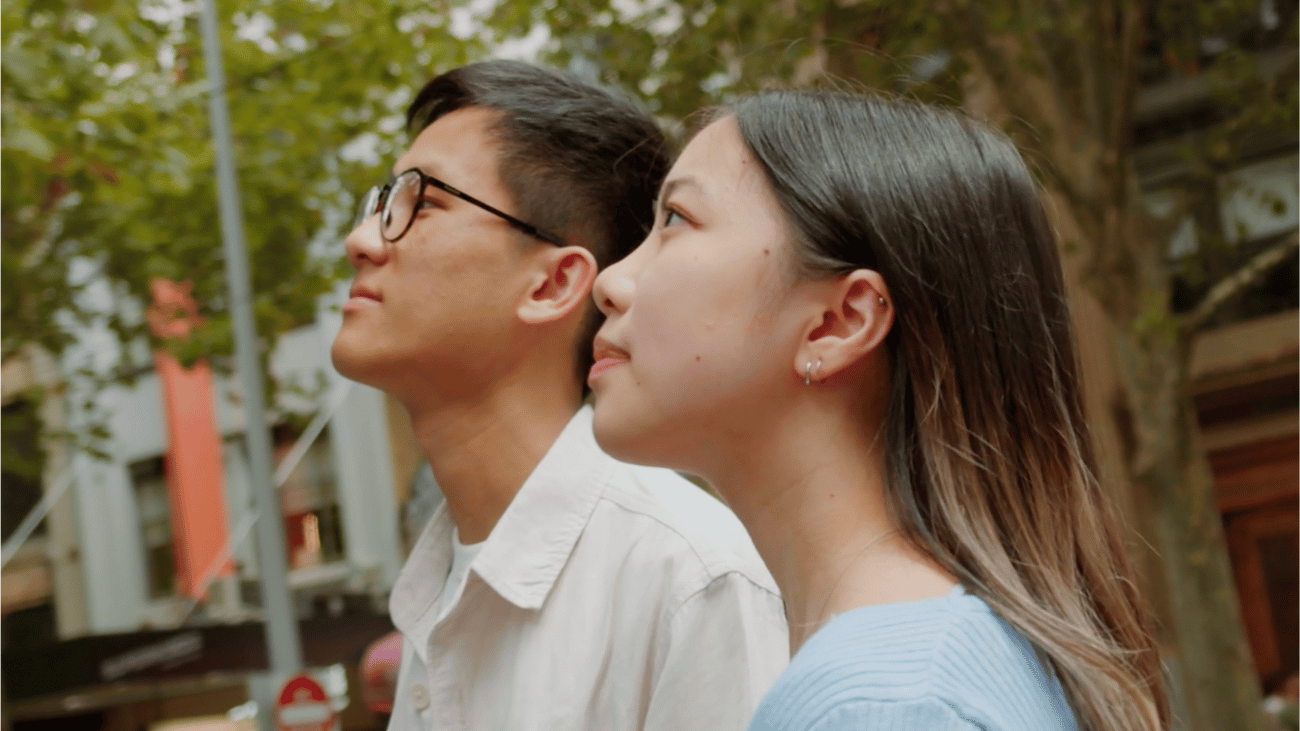.png)
Hieu was one of the world’s most prolific and hunted criminals from 2007 to 2013, when he operated a massive international identity theft scheme from his home in Vietnam. His method was to steal personally identifiable information (names, Social Security numbers, bank account data) and sell it to become rich. 100,000 USD a month rich; 900 x the average Vietnamese monthly salary at the time. Hieu was pursued relentlessly by the Secret Service, until his eventual capture in Guam in 2013. After years in prison, he was granted early release, returning him to his family in Saigon. In that time he transformed, in spirit and ethics, which led to his current role with the Vietnamese government capturing criminals just like his former self. This is his story, and his incredible redemptive arc.
.png)
Just because you rap doesn’t mean you can battle rap! Dumb has been doing this for a minute. That’s part of the reason he’s so respected in most Asian creative communities. Korean-Argentinian-American rapper Dumbfoundead is a multi-talented artist, rapper, and comedian. He stepped onto the scene as a teen, spitting rhymes in the world of battle rap. Being one of the few Asian guys in the game, it was where he found his voice and learned to be unapologetically Asian. Battle rap can serve as an intimate battleground for exploring the complexities of identity. Dumbfoundead's experiences as an artist and storyteller, particularly as a battle rapper, have served as a vehicle for exploring the Asian American experience, both for him and his audience. While Dumbfoundead's lyrical legacy lives on as a prominent figure in the battle rap scene, he continues to grow as an artist and discover new forms of authentic self-expression.

Roni Mazumdar is a culinary trailblazer. The mastermind behind popular NYC restaurant, Masalawala & Sons, Roni is ready to disrupt your idea of what Indian food really looks like. Largely impacted by colonialism, the richness and diversity of Indian food has never been accurately represented in the West. Roni is changing that. Together with Chef Chintan Pandya, Roni co-founded Unapologetic Foods, a visionary restaurant group in NYC that boldly offers unapologetic Indian cuisine. The duo present authentic Indian dishes from lesser-known regions, shedding light on unexplored Indian culinary traditions. While making waves in the NYC food scene, Roni Mazumdar never forgets his roots. His first restaurant, Masalawala & Sons in NYC is an ode to his father, Satyen Mazumdar, and the cherished dishes of his childhood.

There is a Sifu hidden in the hills of Monterey Park who remains a true guardian of tradition and community 🥋🌟 He dedicates his time to training the next generation of martial artists, teaching kids not only self-defense but also the rich cultural heritage that comes with it. As the community has grappled with change, triumph and tragedy, this community of mostly kids holds on to a ritual and practice that keeps the diasporic community connected to their ancestry and home countries. What’s more? The classes are free in an effort to keep as many people practicing as possible.

Subtle Asian Traits isn’t just a Facebook group– it’s a growing community where Asians from around the world feel like there’s a place for them. Whether you’re Simu Liu, Hasan Minhaj or any other of the group’s nearly 2 million members, here, you'll discover the most niche memes about the little aspects of Asian culture – and the Asian diaspora in particular – that are often overlooked. Like the tradition of removing shoes when entering a house or the experience of always having your name mispronounced at Starbucks. And the reason why the group is so successful? Humor. Lighthearted and fun, the space binds thousands of people together through what is common and funny to them. But that doesn’t come without its challenges. When moderating such a large group, the group’s nine founders – Chinese-Australian students from Melbourne – have run into a few problems. “Why are you only representing Chinese culture?” “You need to speak out about more issues.” “Asians are not a monolith.” Despite issues of representation, co-founders Kathleen and Tony are trying their best to honor all identities. They strive to make sure the members have a good relationship with the group, that it’s a welcoming space for all and somewhere people are not afraid to be who they really are.
.png)
12Pell says they’re the Madison Square Garden of barber shops. What they mean is when certain folk come through New York City, they don’t leave without visiting. The barbershop is always packed, and there’s a few reasons why barbers combine Japanese style precise scissor work with the sharp shaves of Dominican barbershop, layered on top of K hair techniques. They are one of a kind, and their audience of nearly 2 million followers on TikTok and 300,000+ on Instagram has made them some of the most sought after barbers of our generation. Customers book months in advance for a slot, with prices starting at $150+ for a trim. But 12Pell is important not just because of the popularity. . During the COVID-19 pandemic when Chinatown became a 'ghost town', the store rarely got any customers. 12Pell translated this downtime into community-driven initiatives, offering free haircuts when customers spent $45 dollars at any Chinatown store, and investing in their TikTok community. Soon, 12Pell had things up and running again for the entire neighborhood, including themselves. The barbershop cares beyond just the business of hair – they show up for the Asian American community by creating a space for young Asian men to feel a sense of belonging.